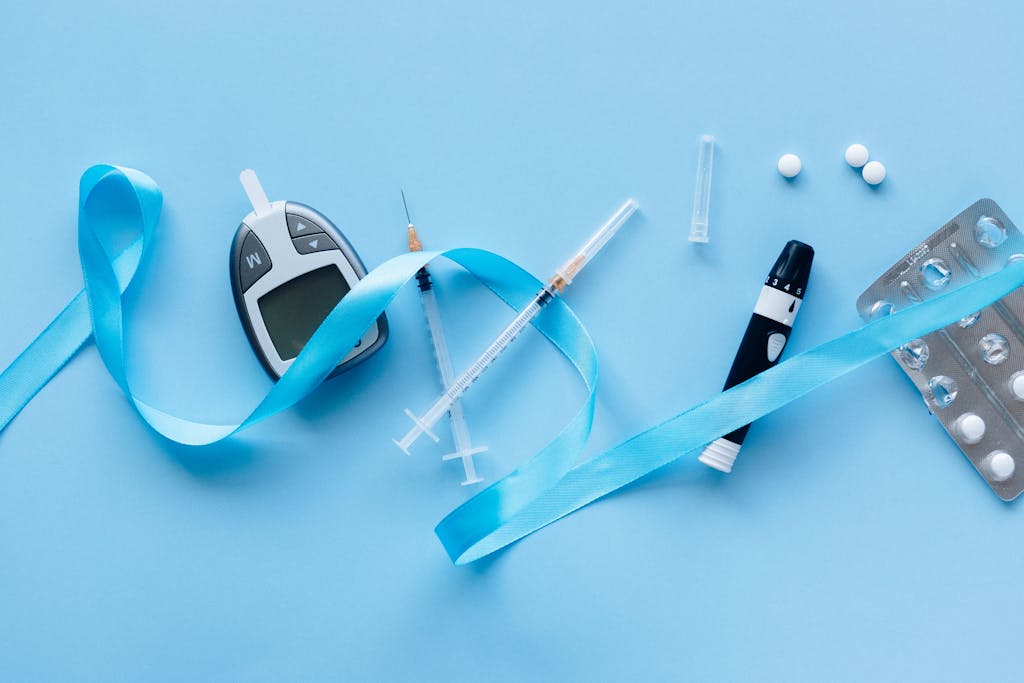Although treating diabetes can seem difficult, you can significantly improve blood sugar management by implementing a few small lifestyle adjustments. Here’s a guide to help you take charge of your diabetes with easy and effective changes.
Eat a Balanced Diet
A well-balanced diet is crucial for managing diabetes. Focus on eating plenty of Non-starchy vegetables like spinach, broccoli, and peppers that are low in carbs and high in nutrients. Whole Grains: Whole grains like brown rice, quinoa, and whole-wheat bread are preferable than refined grains. Lean Proteins: Include lean proteins like chicken, fish, beans, and tofu to help control blood sugar levels. Try to avoid sugary snacks and drinks, as well as processed foods high in saturated fats. Stable blood sugar levels can also be maintained by eating smaller, more frequent meals.
Stay Active
Regular physical activity helps regulate blood sugar levels and maintain a healthy weight. Aim for at least 150 minutes of moderate exercise each week, such as brisk walking, cycling, or swimming. Include enjoyable things in your routine to help you make exercise a regular part of your day.
Monitor Your Blood Sugar
Regularly checking your blood sugar levels helps you understand how your lifestyle choices affect your diabetes. Keep track of your readings and share them with your healthcare provider to make any necessary adjustments to your treatment plan.
Manage Stress
Blood sugar levels can be impacted by stress, thus managing it is crucial. Practice deep breathing, yoga, meditation, or other relaxation techniques. Engaging in hobbies or spending time with loved ones can also help reduce stress.
Get Enough Sleep
Blood sugar regulation and general health depend on getting enough sleep. Aim for 7-9 hours of sleep each night. To enhance the quality of your sleep, set up a regular sleep schedule and make your surroundings relaxing.
Stay Hydrated
Drinking enough water is important for maintaining proper hydration and helping your body function optimally. Aim for at least 8 cups of water a day. Limit sugary beverages, as they can cause spikes in blood sugar levels.
Quit Smoking
If you smoke, quitting can improve your overall health and help control diabetes. Smoking can increase the risk of complications and make it harder to manage blood sugar levels. Consult medical professionals for assistance in quitting.







